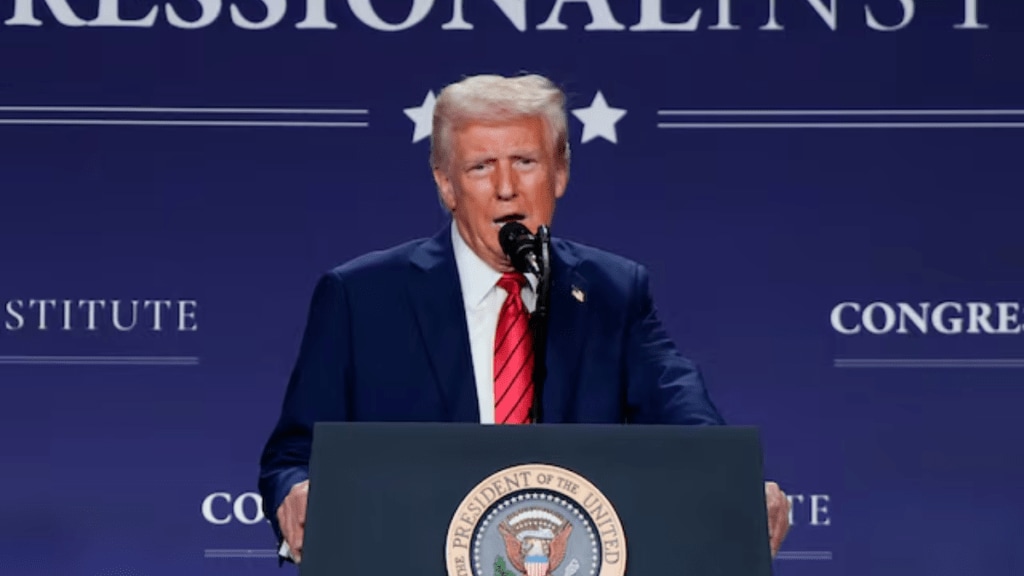The US Navy has issued a warning to its members, prohibiting the use of China’s DeepSeek artificial intelligence (AI) technology, citing significant security and ethical concerns. The announcement came via an email to Navy personnel on Friday, urging them to avoid using the DeepSeek model “in any capacity.” This directive is part of the broader generative AI policy put in place by the Department of the Navy’s Chief Information Officer.
DeepSeek’s Rapid Rise in the AI Market
DeepSeek, a Chinese company, has gained significant attention with the release of its new AI reasoning model, R1, which has been described as a powerful competitor to OpenAI’s technology. DeepSeek’s open-source model has surged in popularity, even surpassing OpenAI’s ChatGPT on Apple’s App Store. The company’s AI model has been praised for its advanced reasoning capabilities, sparking considerable interest within the AI community.
One of the most notable aspects of DeepSeek’s R1 is its relatively low production cost. DeepSeek claimed that the development of its large language model cost under $6 million, a fraction of what major US companies like OpenAI and Google have spent on similar technology. This cost efficiency, despite restrictions on chip exports from the US to China, has raised concerns in the industry about the future of AI infrastructure.
Concerns Over DeepSeek’s Potential Influence
The US Navy’s decision to restrict DeepSeek’s AI follows mounting concerns over the potential implications of its technology. DeepSeek’s AI models are open source, meaning they can be utilized by anyone in the AI development community, including those with potentially malicious intentions. While DeepSeek’s R1 model has garnered praise for its performance, the Navy has raised alarm over the model’s origin and the security risks associated with its use, especially given its links to China.
This caution is also reflected in broader concerns regarding foreign influence in AI development. The Navy’s warning highlights the potential risks posed by using foreign AI technology, particularly in sensitive or classified operations. The email emphasized that all members of the Navy must refrain from downloading, installing, or using DeepSeek’s AI for both work-related and personal tasks.
The U.S.-China AI Race and Its Global Impact
DeepSeek’s rise in the AI field has been a cause for concern in the US, with many industry experts referring to the growing competition between the US and China as an “AI war.” Alexandr Wang, CEO of Scale AI, noted that DeepSeek’s technology is “roughly on par with the best American models,” signalling that the AI race will only intensify in the coming years.
This competition has led to greater investment in AI infrastructure, as evidenced by the announcement of Stargate, a joint venture between OpenAI, Oracle, and SoftBank, which aims to invest billions of dollars in US AI infrastructure. Despite this, the swift progress of Chinese companies like DeepSeek continues to prompt questions about national security and the future of AI dominance.
DeepSeek Faces Growing Scrutiny
The controversy surrounding DeepSeek has escalated following claims of large-scale malicious attacks on its services. In response, the company temporarily limited user registrations, citing the need to address security issues. The sudden rise of DeepSeek’s AI capabilities has drawn attention from US officials, with President Donald Trump calling it a “wake-up call” for American tech companies.
Meta, which has also been developing its own open-source AI models like Llama, has started to take action in response to DeepSeek’s advancements. The company has reportedly set up multiple “war rooms” to focus on the growing competition in the generative AI space.
The Future of AI and National Security
As the US Navy’s warning highlights, the integration of AI technology into critical sectors such as defence and national security is increasingly fraught with risks. The rise of Chinese AI companies like DeepSeek has amplified concerns about the potential for foreign interference and the need for robust security measures. With AI playing an increasingly pivotal role in global competition, the US faces the dual challenge of fostering innovation while safeguarding its national interests.
The ongoing developments signal a rapidly evolving landscape where countries are not only competing for technological supremacy but also grappling with the ethical and security ramifications of AI technology. As the US and China race for dominance in the AI sector, it is clear that national security will remain a central concern in shaping the future of artificial intelligence.

